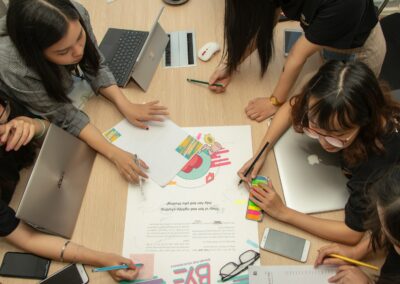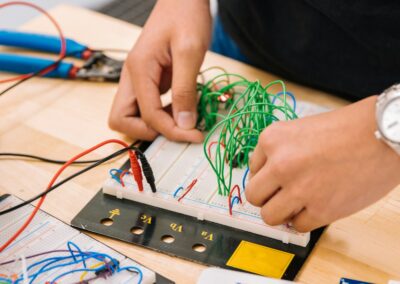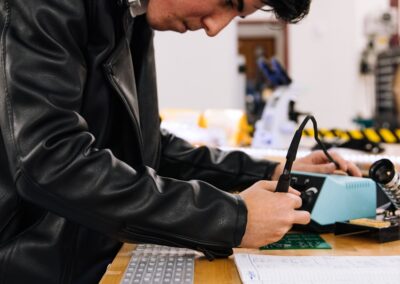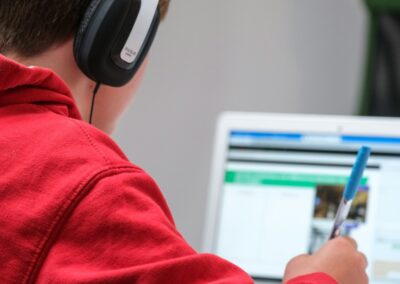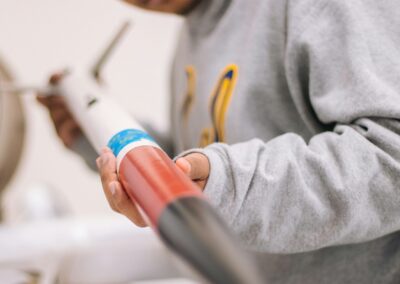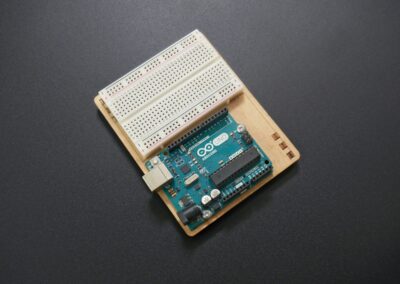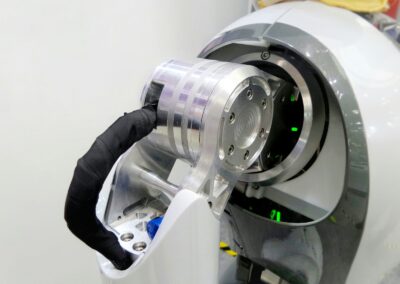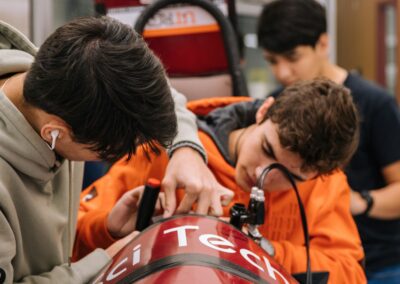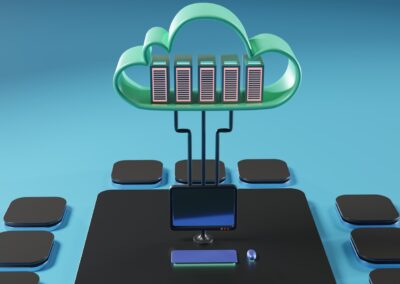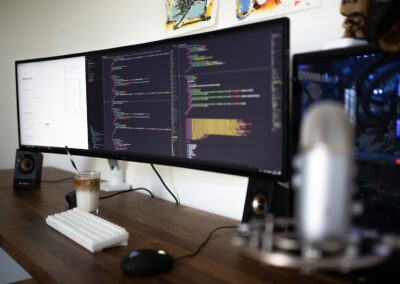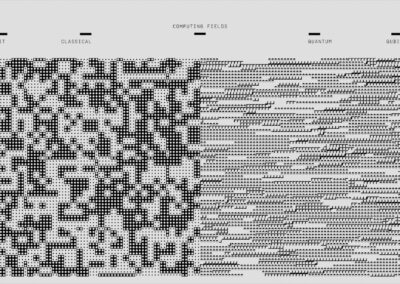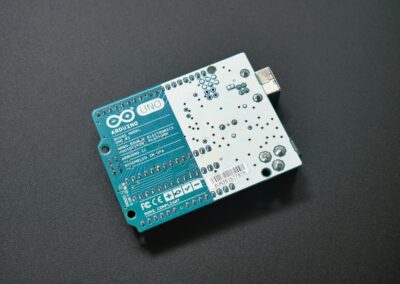Advancing Personalized Education Through Innovation
Lessons from Pioneering Institutions
The implementation of adaptive learning technology has transformed personalized education by offering tailored learning experiences that cater to individual student needs. Drawing on the experiences of pioneering institutions in regions like Saudi Arabia, the UAE, Riyadh, and Dubai, we can identify future directions and potential improvements for adaptive learning technology.
Pioneering institutions have demonstrated that successful implementation of adaptive learning technology requires robust technological infrastructure. For example, schools in Riyadh and Dubai have invested heavily in high-speed internet, advanced software platforms, and up-to-date hardware. This infrastructure is essential for supporting the data-driven nature of adaptive learning systems, ensuring that they operate smoothly and effectively. As we look to the future, continuous upgrades and maintenance of technological infrastructure will be crucial to keep pace with advancements in adaptive learning technology.
Another key lesson from pioneering institutions is the importance of comprehensive training programs for educators. In the UAE, for instance, extensive professional development initiatives have been implemented to equip teachers with the necessary skills to integrate adaptive learning tools into their instructional practices. Future improvements could focus on expanding these training programs to include ongoing support and advanced workshops that delve deeper into the intricacies of adaptive learning technology. By empowering educators with the knowledge and skills to leverage these tools effectively, institutions can maximize the benefits of personalized learning.
Moreover, pioneering institutions have highlighted the need for inclusive and culturally relevant educational content. Adaptive learning technology must be designed to accommodate diverse learning needs and reflect the cultural contexts of the students. In Saudi Arabia, efforts are being made to develop educational materials that align with local cultural values while incorporating global best practices. Future directions could involve greater collaboration between content developers, educators, and cultural experts to create more nuanced and contextually appropriate learning materials that resonate with students.
Technological Advancements and Integration
The future of adaptive learning technology lies in the integration of cutting-edge technologies such as Artificial Intelligence (AI) and Generative AI. These technologies have the potential to enhance the capabilities of adaptive learning systems by providing more accurate and insightful analysis of student performance. For instance, AI can identify patterns in student behavior and learning preferences, allowing for even more personalized and effective learning experiences.
In Dubai, educational institutions are at the forefront of integrating AI into adaptive learning systems. This has led to the development of more sophisticated algorithms that can adjust learning paths in real-time based on student performance data. Future improvements could involve refining these algorithms to provide even more granular insights and recommendations for both students and educators. Additionally, the integration of AI-powered virtual assistants could offer personalized support and guidance to students, further enhancing the learning experience.
Blockchain technology is another promising area for future development in adaptive learning. Blockchain can provide a secure and transparent way to manage educational data, ensuring that student information is protected and tamper-proof. In Riyadh, some schools are exploring the use of blockchain to enhance data security and build trust in adaptive learning systems. Future directions could include wider adoption of blockchain technology across educational institutions, along with the development of standardized protocols for data management and security.
The Metaverse, a virtual reality space where users can interact with computer-generated environments, also holds great potential for adaptive learning. By creating immersive and interactive learning environments, the Metaverse can provide students with hands-on experiences that complement traditional learning methods. In the UAE, some pioneering institutions are experimenting with virtual reality simulations to enhance subjects such as science and history. Future improvements could focus on expanding the range of subjects and experiences available in the Metaverse, providing students with a broader and more engaging learning landscape.
Enhancing Accessibility and Equity
Ensuring equitable access to adaptive learning technology is a critical challenge that must be addressed to prevent widening educational disparities. Pioneering institutions in Saudi Arabia and the UAE are making strides in this area by implementing government-funded programs and partnerships with private organizations to provide technology resources to underserved communities.
Future directions could involve expanding these programs to reach a larger number of students, including those in remote or rural areas. This could be achieved through initiatives such as mobile learning labs that bring adaptive learning technology directly to students who may not have access to traditional educational infrastructure. Additionally, the development of low-cost and scalable adaptive learning solutions could help bridge the digital divide and ensure that all students have the opportunity to benefit from personalized learning.
Furthermore, adaptive learning technology must be designed with inclusivity in mind. This includes providing accessibility features for students with disabilities and ensuring that the technology can be used effectively by students with varying levels of digital literacy. In Dubai, efforts are being made to develop inclusive educational technologies, but there is still room for improvement. Future advancements could involve greater collaboration with accessibility experts and the implementation of universal design principles to create adaptive learning tools that cater to the needs of all students.
Finally, fostering a culture of continuous improvement and innovation is essential for the future success of adaptive learning technology. This involves creating feedback mechanisms that allow educators, students, and parents to provide input on the effectiveness of adaptive learning tools. In Riyadh, some institutions are already implementing regular surveys and focus groups to gather feedback and identify areas for improvement. Future directions could involve the development of more sophisticated feedback systems that use AI to analyze and interpret feedback data, providing actionable insights for continuous enhancement of adaptive learning technology.
Conclusion
The future directions for adaptive learning technology are shaped by the experiences and lessons learned from pioneering institutions in regions like Saudi Arabia, the UAE, Riyadh, and Dubai. By addressing technological, pedagogical, and cultural challenges, these institutions are paving the way for more effective and inclusive personalized education.
The integration of advanced technologies such as AI, Generative AI, Blockchain, and the Metaverse holds great promise for the future of adaptive learning. By enhancing the capabilities of adaptive learning systems and ensuring equitable access, educational institutions can create more personalized and effective learning experiences for all students.
As we look to the future, continuous investment in technological infrastructure, professional development for educators, and the development of inclusive educational content will be crucial. By fostering a culture of continuous improvement and innovation, we can ensure that adaptive learning technology continues to evolve and enhance educational outcomes for students around the world.
—
#adaptivelearningtechnology #futuredirections #educationaltechnology #personalizedlearning #pioneeringinstitutions #SaudiArabia #UAE #Riyadh #Dubai #ArtificialIntelligence #executivecoaching #businesssuccess #moderntechnology



